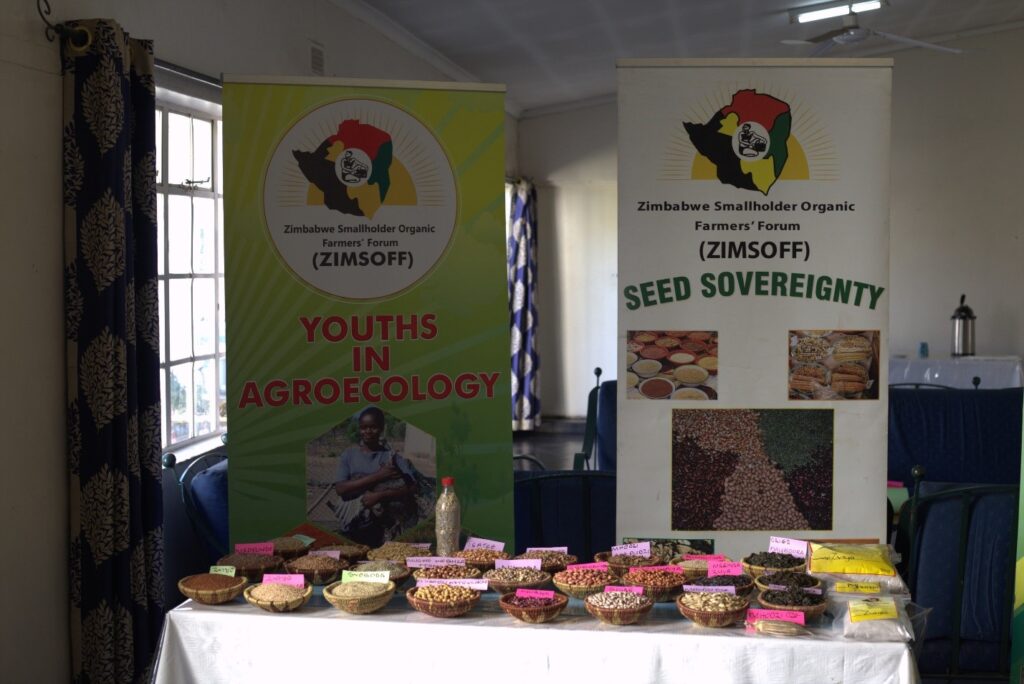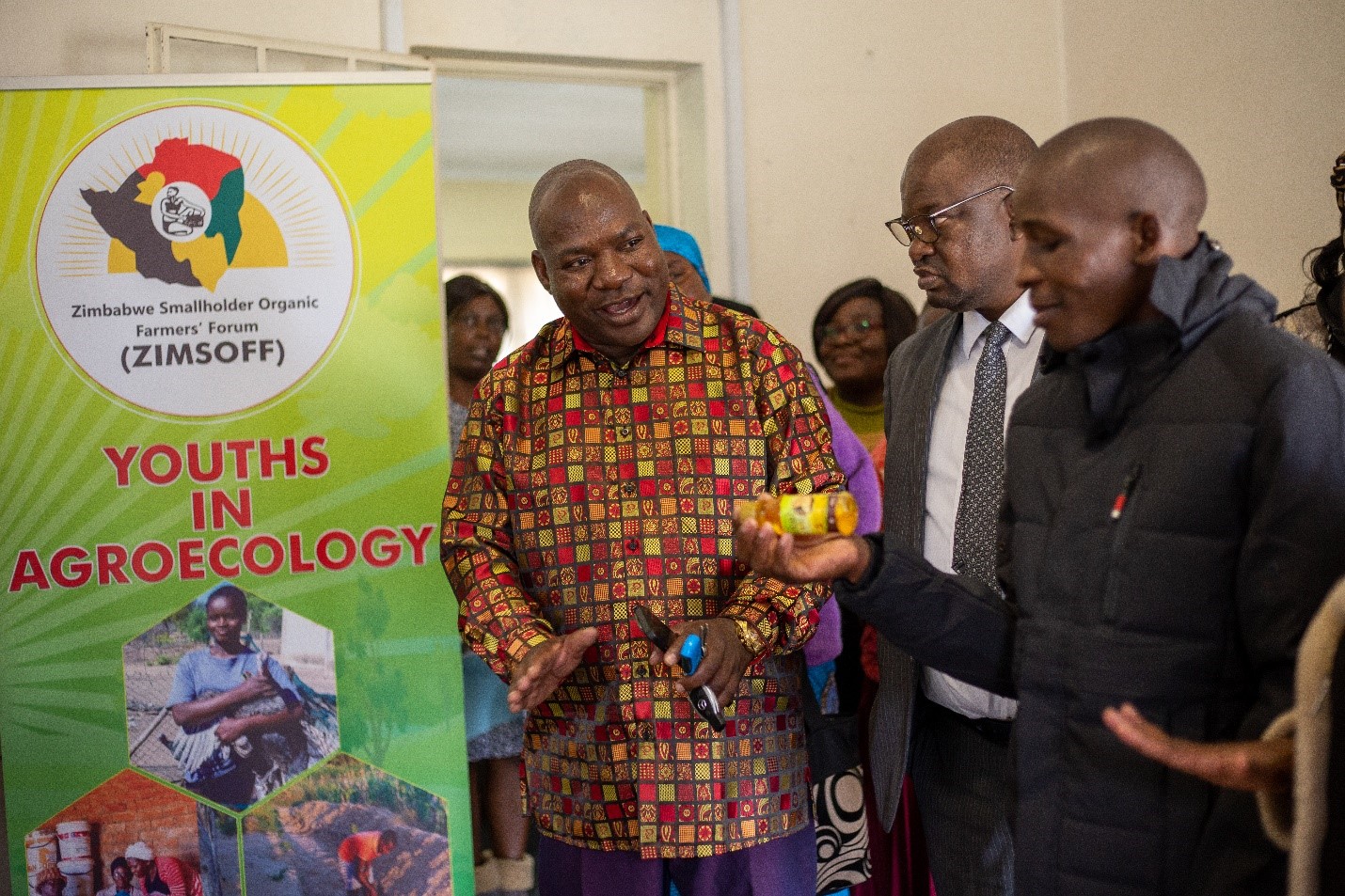
What started as a discussion on agricultural policies in Zimbabwe and the policy making process, among the women and youth articulation ended in a fruitful policy dialogue between the two groups and the Portfolio Committee on Lands, Agriculture, Water, Fisheries and Rural Development on the 24th of June 2024. The policy dialogue was held at SOS venue in Harare. A total of 18 peasants (4 men and 7 women and 7 youths) participated in the policy dialogue. Also, in attendance at the policy dialogue were 07 ZIMSOFF board members. The focus of the policy dialogue was on policy gaps and opportunities that exist in agroecology, peasant rights and climate justice. The Parliamentary portfolio committee comprised of 7 members, headed by Honorable Felix Maburuse as chair of the committee. The policy dialogue was an eye opener for both farmers and the policy makers.
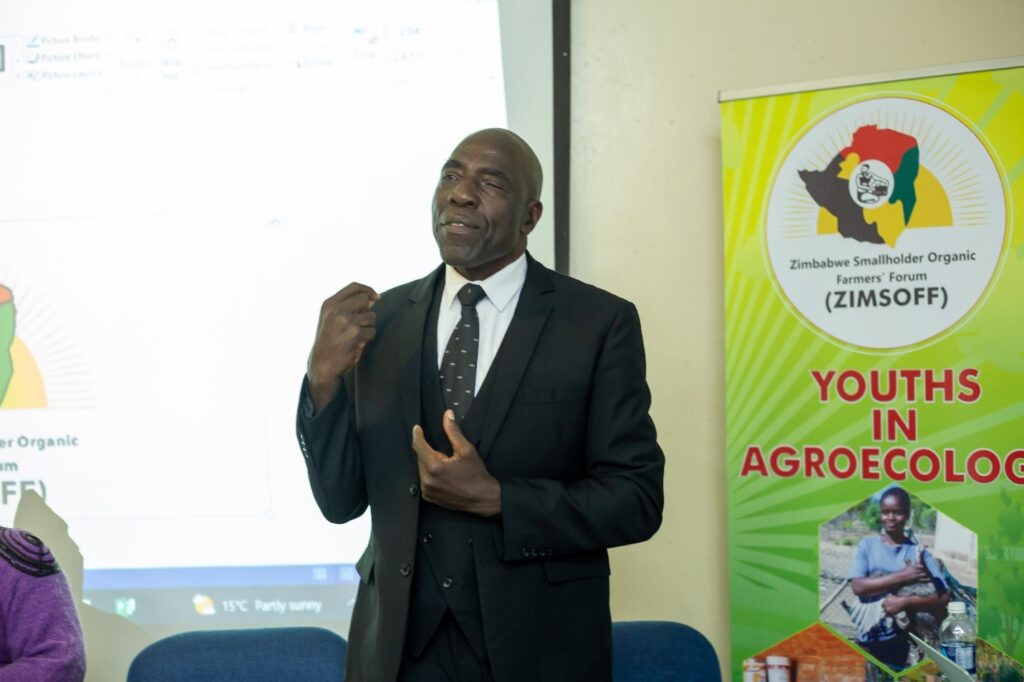
The policy dialogue had two broad sessions. In the first session, the Parliamentarians toured displays of (well labelled) farmer-saved seeds grown by ZIMSOFF farmers to mitigate the impacts of climate change as well as food products from traditional grains. There was display of forest products of baobab (pulp, fruit, oil, “coffee”), honey (processed and on comb), masawu (Ziziphus mauritania), matohwe (Azanza garckeana). There were also banners depicting the different agroecological projects that ZIMSOFF farmers engage in to mitigate the impacts of climate change and empower women and youths. There was a banner of small livestock that women and youth farmers’ rear. Mrs. Daisy Mandaza, a female farmer from Gutu SFO, Central Cluster eloquently explained to the policy makers how small livestocks such as poultry, rabbits, bees, etc. are neglected in policies yet they economically empower women and youth, provide cheap and easy protein to the family, are adaptable to a changing climate. Mr. Lovemore Kumbula manned another banner on Youths in Agroecology. The banner depicted how youths are actively involved in agriculture and agroecology, and yet, like small livestock, remain largely unnoticed in national policies and development discourse in general. The last part of the display session had a compendium of literature on agroecology and climate justice written and used by ZIMSOFF in its work.
The second phase of the dialogue included presentations by three ZIMSOFF farmers (one woman and two youths- male and female). The chairperson of the portfolio committee also made a presentation.
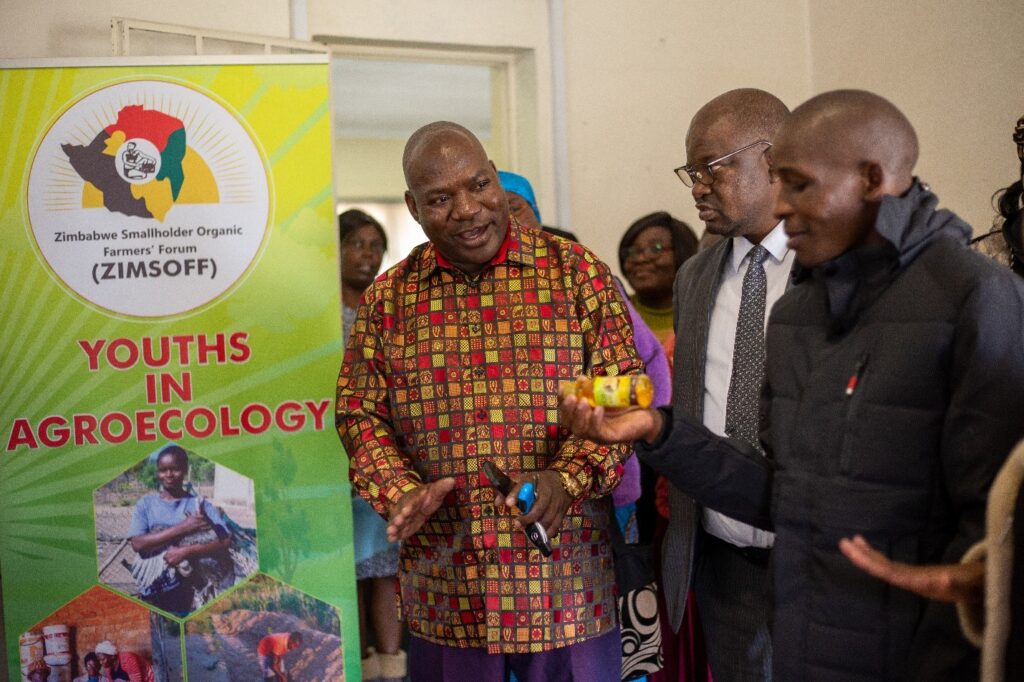
Key highlights of the presentations by ZIMSOFF farmers were: the need for Government to recognize peasant rights by domesticating (UNDROP) United Nations Declaration on Rights of Peasants to local context, provide land to women and youths, support agroecology, ensure climate justice (e.g. compensating agroecology farmers via soil carbon stocks), provide (free) radio and television space for peasants to showcase their agroecological practices, and recognize and protect traditional seeds. A clarion call was also made by the women and youths to integrate
Women and Agroecology in school curriculum from Primary level to University level. With regards to land and youths, the farmers bemoaned the fact that even though there is a youth desk in the Ministry of Lands, Agriculture, Water, Fisheries and Rural Development, rural youths have not benefited from that desk. Some cross cutting issues such as gender based violence, sexual reproductive health, drug abuse which affect agricultural production were also discussed with a view to adopt a cross sectoral approach to agriculture.
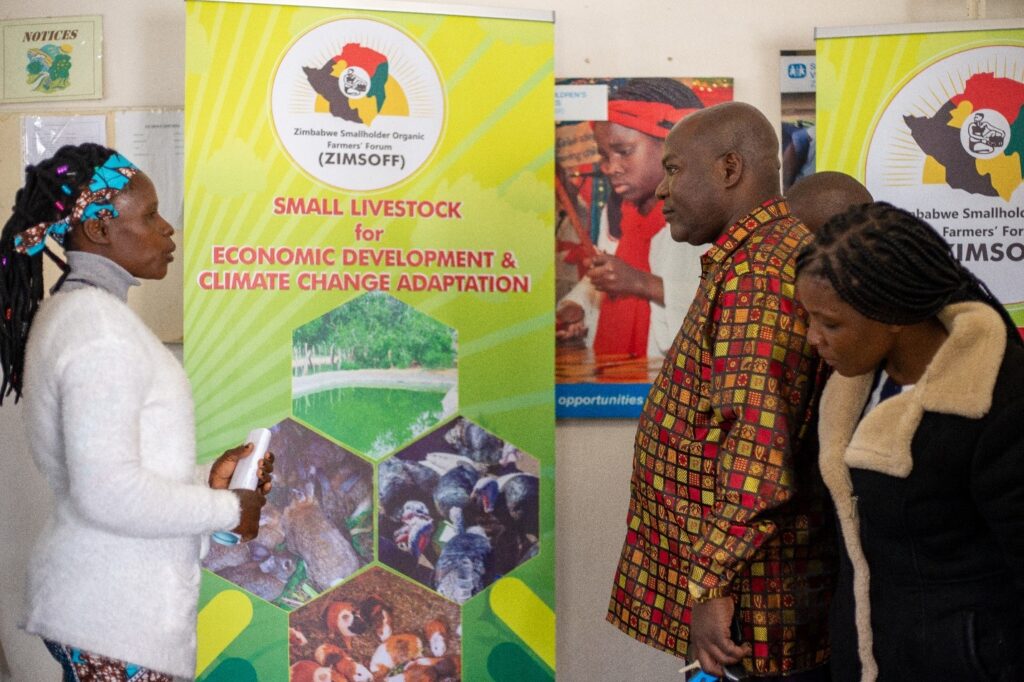
The chairperson and the rest of the team of portfolio committee was impressed with the work that ZIMSOFF famers are doing which is in line with the national development strategy and towards the government of Zimbabwe’s vision 2030 of being an upper middle-income economy by 2030. Specifically, in his prepared speech, the chairperson of the portfolio committee made reference to the National Agriculture Policy Framework (NAPF) 2018-2030 that, “seeks to develop Zimbabwe’s agriculture into a thriving, productive, and resilient sector. It promotes inclusivity, promoting smallholder farmers’ interests through capacity building, market access, and sustainable farming techniques, while also encouraging organic farming and agro ecological methods to improve soil fertility and biodiversity”. In his view, of creating an enabling environment, Government can ensure that small-scale farmers prosper and contribute to Zimbabwe’s robust and sustainable agricultural economy. Other committee members averred, noting that ZIMSOFF was engaging with the issue of food from a unique angle of food sovereignty as opposed to food security. ZIMSOFF approach was better as it ensured production of healthy food and promotion of the national economy. The committee also promised to take up all the issues raised by the farmers to higher offices for deliberation.
A list of “asks” that was prepared beforehand is going to be finalized and shared with the portfolio committee for Lands, Agriculture, Water, Fisheries and Rural Development Committee. The Parliamentarians encouraged ZIMSOFF to keep engaging policy makers and share evidence of the good work the peasants were doing. This could be done by inviting the Portfolio committee on Lands, Agriculture, Water, Fisheries and Rural Development to the ground so that they could witness the good work the peasants were doing.
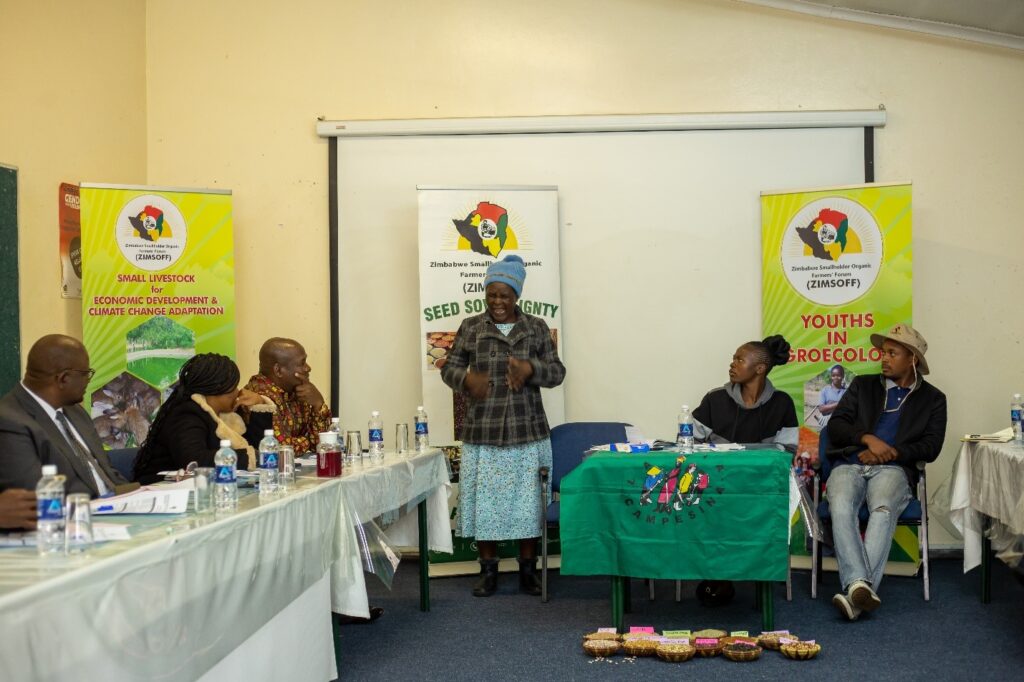
To that end, ZIMSOFF farmers are going to invite the policy makers and media to the ground so that the latter could have a better appreciation of the issues the former were raising. As part of their social contract, the portfolio committee promised to work with Smallholder farmers and giving them support. They also requested to be invited during events that are conducted by ZIMSOFF so that they document and do evidence-based advocacy. ZIMSOFF farmers were also promised to be included in all decision-making process and the portfolio committee promised to give an invitation letter to Smallholder farmers to participate especially in national budget consultations.
In sum, through the policy dialogue, a seed was planted- it now needs to be watered and nurtured by both the peasants and Parliamentarians through sustained dialogue and follow up action on agreed activities.
